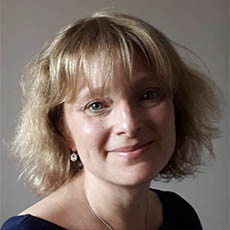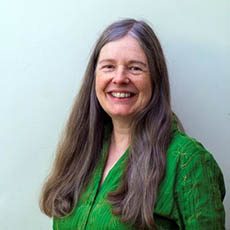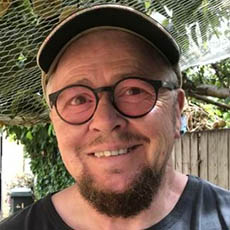About the Autism Centre for Education and Research (ACER)
The Autism Centre for Education and Research (ACER) focuses on developing evidence based practice and provision in autism across the lifespan. We cover the range of ability levels and use methodologies based on knowledge co-construction with autistic people, practitioners and families.
Our world leading autism research involves collaboration with service users, with practitioners and carers and through partnership with key policymakers. We work interactively with institutions both inside and outside higher education and we actively encourage prospective partners locally, nationally and internationally.
The Autism Centre for Education and Research is a member of the Department for Disability, Inclusion and Special Needs which is in the School of Education, University of Birmingham.
Public engagement
ACER members undertake a range of public engagement activities. These include providing workshops and professional development to local authority staff and schools, and giving presentations at networking events and practitioner conferences. The AuVision project (led by Dr Andrea MacLeod in partnership with autistic students) has launched its online resource to educate HE staff in Inclusive Curriculum strategies to support autistic students and members of staff within the University of Birmingham. This has also attracted the interest of other Universities.
Impact
In 2011, ACER’s was funded to develop the Autism Education Trust CPD programmes for education staff. These programmes were developed by a partnership of autistic people, practitioners, education providers and universities, and were underpinned by research undertaken by ACER staff. 220,000 education staff have undertaken this professional development programme to date. Through this work, ACER has contributed to improving educational practices and methods in Early Years settings and schools; enhanced the delivery of professional services and impacted on understanding, learning and participation in autism education in a number of countries.
The last two years has seen us focus our research efforts on where we feel need is greatest and where the voice of certain groups is sometimes not heard:
Members of ACER
Full time members of academic staff
Professor Laura Crane
Laura is Professor of Autism Studies and Director of the Autism Centre for Education and Research. The goal of Laura's work is to conduct research on topics that matter to autistic people and their allies, through working in collaboration with them. In this regard, Laura's research interests are wide-ranging, and she has published extensively in the fields of education, healthcare, and criminal justice
Email: l.crane@bham.ac.uk
Read Laura's full profile
Professor Karen Guldberg
Karen is Professor of Autism Studies. She is passionate about ensuring there is synergy between her teaching and research. She teaches on undergraduate level programmes through to Masters and PhD level, with all the teaching focused on meeting the needs of parents and practitioners in the field of autism. She has a particular interest in online learning and developed the first blended learning programme in autism, which was launched in 2002.
Her research interests are in the areas of Technology Enhanced Learning for children with autism; the training needs of practitioners in the field of autism and on notions of 'good autism practice'. She applies social learning theory to her work, with a particular focus on communities of practice. She is also inspired and guided by theories around inter-subjectivity.
Email: k.k.guldberg@bham.ac.uk
Read Karen's full profile
Dr Andrea MacLeod
Her research focuses on Models of support for adults, specifically those with Asperger syndrome and models that promote self-advocacy and autonomy.
Before joining the University Andrea worked in the voluntary sector, supporting adults with disabilities. She developed and managed models of support (including supported living, employment, peer support and community inclusion) for adults with Asperger syndrome within the West Midlands region.
Email a.g.macleod@bham.ac.uk
Read Andrea's full profile
Dr Prithvi Perepa
Prithvi started his career as a special needs teacher and worked with children on the autism spectrum across the age range (from early years to further education) in India and UK. He was an advisory teacher for children with autism within mainstream schools where he mainly supported children and staff in early years and primary school settings. Later he worked as a disability advisor at the London South Bank University. In addition to educational settings, he has experience of working in adult care, both in supported living and independent living settings.
His research has focused mainly in the field of autism and family experiences. Recently he has led a project which developed a national strategy for autism in the Sultanate of Oman. He particularly interested in culture and autism.
Email p.perepa@bham.ac.uk
Read Prithvi's full profile
Practitioner Tutors and Teaching Fellows
Miranda Andras
Miranda Andras is a Practitioner Tutor on the Autism (Children) course and has supported students with their studies at the University of Birmingham over the last seven years.
She worked as a Specialist Teacher for children with autism, delivering Autism Education Trust Training to staff across Essex, supporting pupils, families and schools in developing positive learning experiences. It is Miranda’s strongly held belief that the starting point in any provision should be to recognise the strengths of the individual and to focus on and develop their areas of interest. This prompted extensive work on Lego Therapy in schools, which was published in the Good Autism Practice Journal.
Miranda is a Trustee of a working farm for young adults with learning disabilities and autism, which aims to give young people a stepping stone into meaningful employment by providing jobs linked to their skills. She is also a Governor for an autism-specific provision for pupils with complex needs, which delivers an academic and therapeutic curriculum.

Chris Atkins
Chris Atkins has worked with autistic people for over 40 years, initially in a number of roles for the National Autistic Society, but since 2001 he has been the Chief Executive at Stroud Court Community Trust. The trust is an independent charity providing a range of specialised services to autistic adults established almost 40 years ago to support autistic individuals in a wide variety of residential and educational settings.
He is also the Disabilities Representative of his local care association, the Gloucestershire Care Providers Association (GCPA). This role requires him to work in partnership with local providers, the local authority, and the Clinical Commissioning Group to improve the quality of care provision in the county.
Finally, he is also a director of AT-Autism, a specialised training consultancy specialising in supporting services working with autism and other neurodevelopmental conditions.
He has worked at the University as a distance education tutor on both the Web Autism and Autism (Adults) Programme of Study for several years now, but he still struggles with Canvas at times, so you are not alone…!
Email c.r.atkins@bham.ac.uk.

Helen Bradley
Helen qualified as a teacher of infant children and all age children with severe learning difficulties. She taught in special schools for five years before qualifying as an educational psychologist. She then worked as an NHS clinical psychologist, initially working with children and then adults with learning disabilities. She had a specialist then lead post for adults with autism and learning disabilities and is now working in private practice as a clinician for SPARC, an adult autism diagnostic service.
Helen has always been drawn towards work with children and adults who have learning disabilities and complex conditions like sensory impairments and autism spectrum conditions. She is interested in ways of supporting people whose lives are complicated by behaviours that interfere with quality of life (also called challenging behaviours or behaviours of concern.) She has an eclectic approach to intervention so may use a variety of approaches, for example Solution Focused Therapy tools, as part of her assessment and intervention. She was one of the leaders of a county wide Positive Behavioural Support scheme in Worcestershire which focused on improving quality of life for service users with clear standards for services and a robust programme of training and skills development for staff.
She believes that it is important people get the correct diagnosis because that gives everyone essential information that will affect understanding and intervention. This is an issue in autism. She is DISCO and ADI-R trained and has developed comprehensive tools for post diagnostic support.

David Edwards
David grew up in Leicestershire; and after a brief interlude at Aberystwyth University and a job at Westminster Cathedral Conference Centre, he started teaching in 1985. He began as a primary school teacher, progressing to Maths and finally working with those with learning difficulties in school. He ended up joining the Leicestershire Autism Outreach Team and was professional leader of the Team at the time of his departure for France in 2001.
He now lives in the south of France and works in a big mansion house in the countryside. Since 2005, he has been trying to help his teams do their best with 90 children and young adults with a mixture of different challenges who keep them on their toes! In 2016, he joined a team that works with 41 youngsters from 3 to 20 years of age, mostly in the French education system but also at home with families, so he works a lot on going out into the community and, for the older ones, discovering adulthood.
He was a tutor on the Web Autism course since its inception in 2001 until 2017, when he joined the distance Autism Children course and he always enjoys the challenges that broadening his knowledge base with students brings him.
Apart from his two grown-up children who are now established in their own professional lives, he has with his wife three Anglo-French children (20, 17 and 14 years of age) in Castres.
Enjoy your year with us at Birmingham, and if you need any help or have any questions then contact him. His email address is: d.s.edwards@bham.ac.uk and this is the best way to contact him!

Annie Etherington
Annie has been a tutor on the Autism (Children) Distance Learning Programme for over 16 years. She is also an independent trainer and consultant working in the field of autism, working across the UK but has also contributed to conferences internationally. Annie has worked in the field of autism for over 45 years. She has worked across the age range from pre-school children (working with them in their homes alongside their parent or carer); students in primary and high school, through to adults. As a teacher she has set up specialist autism provisions and worked in both mainstream and specialist settings, including a residential, autism specific school. For over a decade, she led a team of autism specialists to provide outreach support to schools and families for a Local Authority in North London.
Autism has been a focal point of interest throughout Annie’s working life. She regularly works with speakers on the spectrum as co-presenters and particularly values the essential perspective they offer to our understanding. When this is not possible, Annie will use film and first-hand accounts to ensure the autism voice is represented. This underlines her ongoing interest in the growing understanding of neurodiversity and the importance of creating learning and living environments that embrace a wealth of cognitive processing styles as well as the variety and richness of, possibly, alternative emotional expression within relationships. She has published papers and journal articles which address some of her particular areas of interest. These include:
- Peer awareness programmes to support inclusion
- Developing literacy, particularly inference skills
- Social understanding

Wenn Lawson
Dr. Wenn B. Lawson (PhD), an autistic lecturer, psychologist, researcher, advocate, writer and poet has passionately shared his professional and personal knowledge re: autism, for 25 years.
He has written and/or contributed to over 25 books and many papers. He is an honorary researcher for Curtin University, WA, and for Macquarie University NSW’s in Australia. He is a Tutor Practitioner for the University of Birmingham’s Masters Autism course (Children’s), participant with the autism Co-operative Research Centre (ACRC), Co-Chair of the Autism Research Council Australia, ambassador for the ‘I CAN’ agency of Australia, and resides on the Editorial Board for the Journal, Autism in Adulthood.
Dr. Wenn is a family man with autistic adult offspring and autistic grandchildren. In 2017 he presented to the United Nations on matters of Autism and ageing. Dr. Wenn is passionate about all things ‘autism’, birds, animals and some humans!

Angela Purdy
Angela is a Teaching Fellow (Autism: Children) within the Department of Disability, Inclusion and Special Needs (DISN).
Angela started her career as a primary school teacher and Special Educational Needs Co-ordinator (SENCO). She became a Specialist Advisory Teacher (Autism) within a large Local Authority, supporting children with autism, their parents, and helping schools to develop good autism practice. She developed her knowledge and understanding of autism by studying for a Masters’ Degree (Special Education: Autism (Children)) at the University of Birmingham. Angela became a regional tutor at the University of Birmingham supporting students studying on the Autism (Children) distance learning courses.
Her career in the field of autism has spanned many years and she is an experienced practitioner with a commitment to supporting others to further develop their own knowledge and professional practice.
Currently, Angela works as an Independent Specialist Advisory Teacher (Autism and Social Communication Difficulties) offering services to children, parents, and schools. She also works as a mentor and study skills supervisor, supporting autistic students who studying at university.

Dr Stephanie Robinson
Stephanie has worked extensively over many years in supporting people on the autism spectrum. She has held posts in both the statutory and the voluntary sectors. Her experience has covered all age groups, but with a particular focus on further and higher education. She has also been the registered manager of a residential service. In recent years she has worked to develop and deliver autism-specific training to a wide range of families, carers and other professionals. She has been associate editor and reviewer for peer reviewed journals on autism and tertiary education, and is a trustee of an autism charity.
Her primary interest is in maximising opportunities for autistic individuals, with research interests in inclusion and the way that people who have autism can progress meaningful learning throughout their lives.
Sandy Thomson
Over the past 30 years Sandy has designed, managed and developed a range of services for children and adults with autism in Central Scotland. In addition to this Sandy has been active in Autism Accreditation throughout the UK and Ireland at Team Leader level.
A strong supporter of the programme at University of Birmingham, Sandy has been a tutor since 2001 and supports both adult and children programmes.
Academics on Honorary contracts
Contact us
To get in touch with ACER, please email Professor Laura Crane.
Email: l.crane@bham.ac.uk